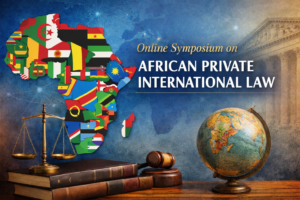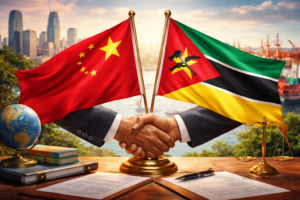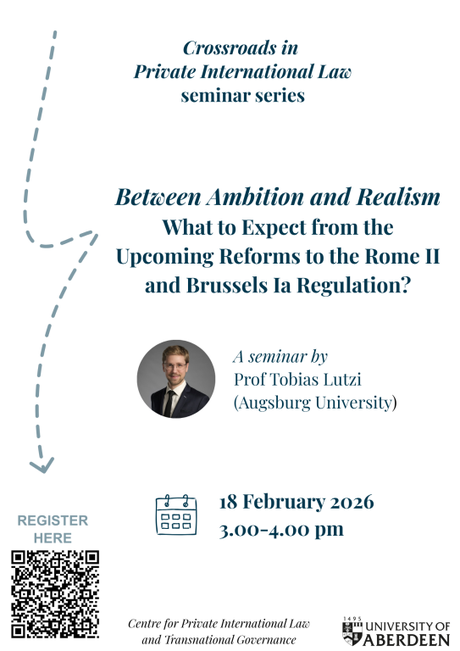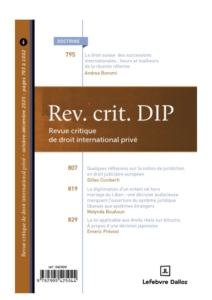Views
Online Symposium on Recent Developments in African PIL (IV) – Party Autonomy, Genuine Connection, Convenience, Costs, Privity, and Public Policy: The Kenyan High Court on Exclusive Jurisdiction Clauses

As part of the second online symposium on recent developments in African private international law, we are pleased to present the fourth contribution, kindly prepared by Anam Abdul-Majid (Advocate and Head of Corporate and Commercial Department, KSM Advocates, Nairobi, Kenya) and Kitonga Mulandi (Lawyer, KSM Advocates, Nairobi, Kenya), on Party Autonomy, Genuine Connection, Convenience, Costs, Privity, and Public Policy: The Kenyan High Court on Exclusive Jurisdiction Clauses
Online Symposium on Recent Developments in African PIL (III) – Foreign Judgments in Mozambique through the Lens of the Enforcement of a Chinese Judgment: Liberal Practice in the Shadow of Statutory Rigidity


As part of the second online symposium on recent developments in African private international law, we are pleased to present the third contribution, prepared by Béligh Elbalti (The University of Osaka, Japan), on Foreign Judgments in Mozambique through the Lens of the Enforcement of a Chinese Judgment: Liberal Practice in the Shadow of Statutory Rigidity.
From Deference to Objectivity: How Courts Are Rewriting the Commercial Reservation
By Taimoor Raza Sultan, Stockholm University
Introduction
The 1958 New York Convention (‘NYC’) is widely regarded as international arbitration’s most significant achievement. Having been ratified by over 160 states, , establishing a credible system of enforcement for arbitral awards. Yet the commercial reservation under Article 1(3), which allows the reserving state to limit the application of the ‘Convention only to differences …. considered as commercial’ under its own national law, risks jeopardizing the uniformity of the convention. By domesticating the definition of commerciality, the reservation invites forum shopping and inconsistent enforcement. Read more
News
Crossroads in Private International Law Webinar with Tobias Lutzi on “Crossroads in Private International Law Seminar on the Reform of EU Private International Law” at the University of Aberdeen
The Centre for Private International Law & Transnational Governance of the University of Aberdeen is continuing its Crossroads in Private International Law webinar series with a talk by Tobias Lutzi (University of Augsburg) titled ‘Between Ambition and Realism – What to Expect from the Upcoming Reforms to the Rome II and Brussels Ia Regulation?’:
The Centre for Private International Law & Transnational Governance invites you to attend the next seminar in our Crossroads in Private International Law seminar series. You can find the link to register at the bottom of this page.
Prof Tobias Lutzi (Junior Professor for Private Law at Augsburg University) will give a seminar on the reforms to the Rome II and Brussels Ia Regulation. Prof Lutzi has kindly provided the following abstract:
Last year, the EU Commission formally kicked off the process of reforming two key instruments of EU Private International Law, identifying potential areas for reform and setting out some overarching policy goals. In 2026, the Commission will face the more difficult decision of which of those areas to actually focus on. This talk will discuss the respective merits of those areas of reform, highlighting the tension between ambition and realism that will shape the Commission’s work.
We are looking forward to welcoming you online or on campus!
Additional information and the link to register can be found here.
Revue critique de droit international privé – Issue 2025/4
Written by Hadrien Pauchard (assistant researcher and doctoral student at Sciences Po Law School)
The fourth and last issue of the Revue Critique de droit international privé of 2025 has just been released. It contains four articles, eight case notes, and six book reviews. In line with the Revue Critique’s policy, the doctrinal part will soon be made available in English on the editor’s website (for registered users and institutions). Read more
Conflict of laws in the South African courts: an(other) recent missed opportunity
Posted on behalf of Jason Mitchell, barrister at Maitland Chambers in London and at Group 621 in Johannesburg.
An Australian, Hannon, wants to book a Southern African safari with his partner, Murti, as a surprise birthday gift. He sees one he likes on an Australian travel website. Hannon fills in the online form.
It turns out that the website is just the agent for a South African company, Drifters Adventours. Drifters emailed Hannon the price and payment details. Attached to the email is a brochure. The brochure says, “Drifters do not accept responsibility for any loss, injury, damage, accident, fatality, delay or inconvenience experienced while on tour.” The brochure also says, “You will be required to complete and sign a full indemnity prior to your tour departure.” Read more



